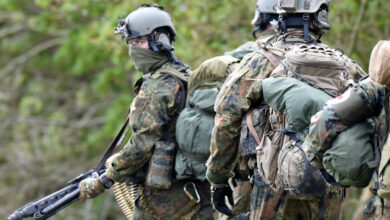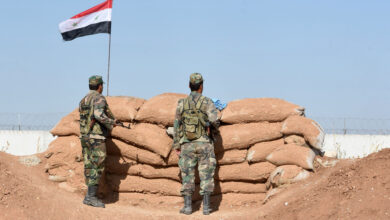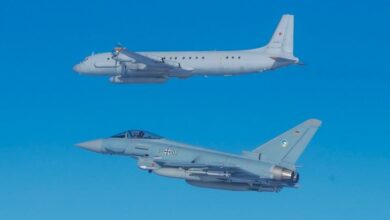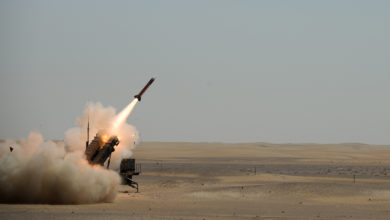Germany to Pull Troops From Mali by End 2023: Govt Source
Germany will end its participation in a UN peacekeeping mission in Mali by the end of next year, a government source told AFP on Wednesday after months of operational snags.
“By the end of 2023 at the latest, German soldiers are to end their involvement in the UN blue helmet mission MINUSMA,” the source said.
Britain and Ivory Coast earlier this week said they would be withdrawing from the mission.
According to the German source, officials from the chancellery, the defense ministry, and the foreign ministry have reached an agreement in principle to pull out the troops.
A final decision on whether to continue in Mali will be made next Tuesday at a meeting attended by Chancellor Olaf Scholz, the source said.
A foreign ministry source said talks were still ongoing and a final decision had not yet been made.
The German military has been in Mali since 2013 with a presence of up to 1,400 soldiers as part of the MINUSMA mission.
The German troops are in part meant to make up for the loss of French soldiers, after Paris pulled out its forces from the country earlier this year.
French troops had been in Mali for almost 10 years helping to fight jihadist groups that pose a growing threat in the Sahel.
But they withdrew after a breakdown in relations as the junta turned away from France and towards Russia in its fight against jihadism.
German forces have faced increasing difficulties in recent months and have repeatedly had to suspend reconnaissance patrols after being denied flyover rights.
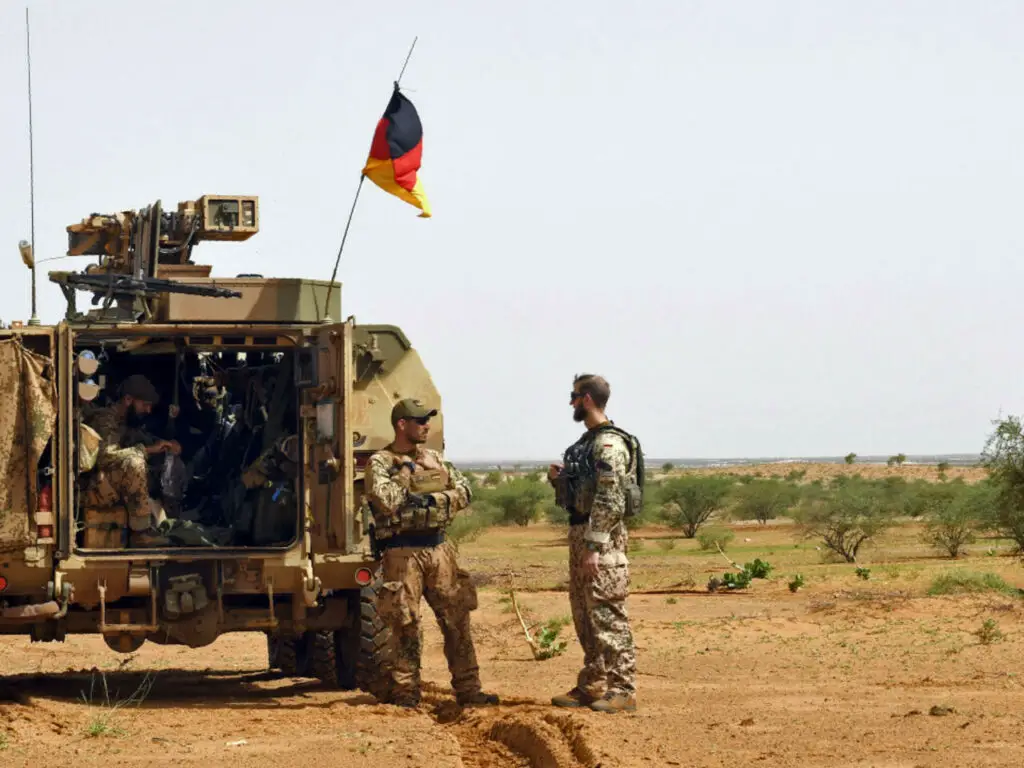
Grounded Drones
The defense ministry on Wednesday said Mali had not granted the required permissions for its reconnaissance drones since October 11.
“Of course, this has an impact on the execution of the mission — it is considerably restricted,” a spokesman for the ministry said.
Mali’s elected president, Ibrahim Boubacar Keita, was toppled in August 2020 by officers angered at the failures to roll back a jihadist insurgency that has claimed thousands of lives and driven hundreds of thousands from their homes.
The following year, the military forced out an interim civilian government and started to weave closer ties with the Kremlin, acquiring Russian warplanes and helicopters and bringing in personnel described by the West as mercenaries from the Russian Wagner group.
Relations with France, Mali’s former colonial power and traditional ally, swiftly went downhill.
Ivory Coast on Tuesday said it would withdraw its troops from the UN’s peacekeeping operations by August 2023.
Announcing Britain’s pullout on Monday, Defence Minister James Heappey said Mali’s military rulers were “not willing to work with us to deliver lasting stability and security.”
He added that their “partnership with Wagner group is counterproductive to lasting stability and security in their region.”
The UN Security Council renewed its MINUSMA mandate for one year on June 29, although the junta opposed requests to allow freedom of movement for rights investigators with the mission.
MINUSMA is one of the UN’s biggest peacekeeping operations, with 17,557 troops, police, civilians and volunteers deployed as of June, according to the mission’s website.


